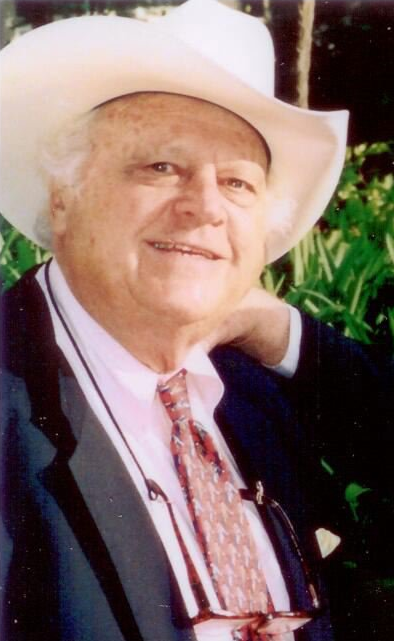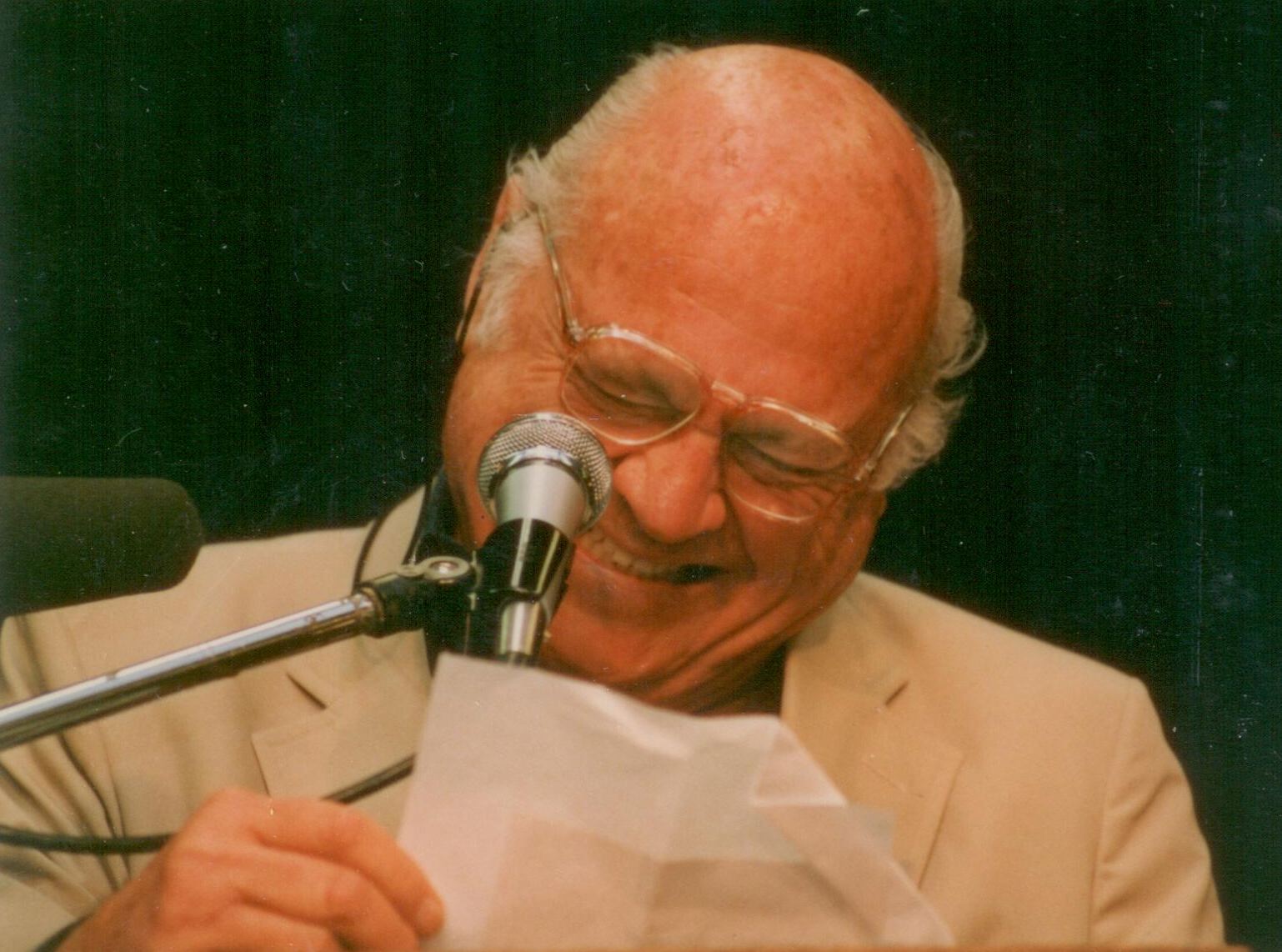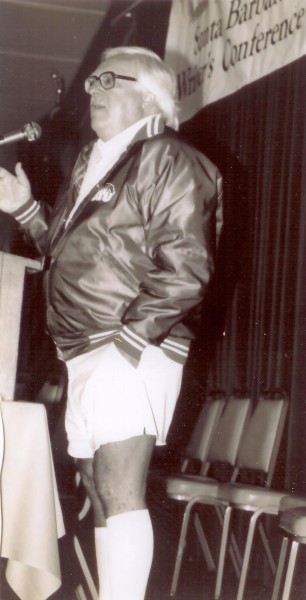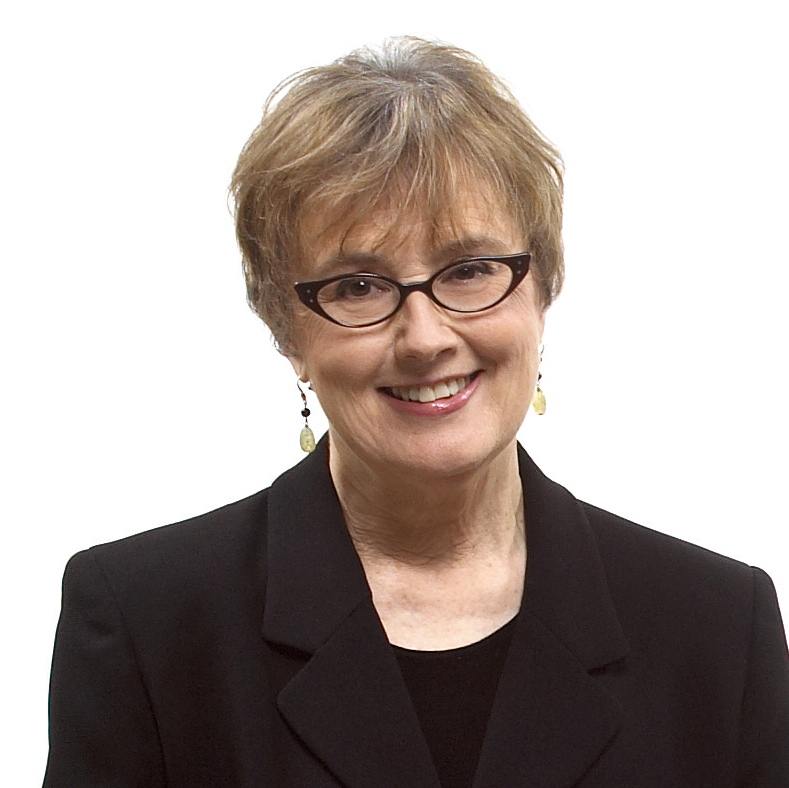Interviewer: Marianne Dougherty, Editor of SBWC's Write On
Recently your fearless editor caught up with Clive Cussler, the undisputed master of the action adventure novel, who will be speaking tonight at 7:30. The prolific writer, who will turn 80 on July 15, is a man of many interests, and he’s managed to indulge most of them during his lifetime. “Sometimes I look back and wonder how it all happened,” says Cussler, who was a flight engineer in the Military Air Transport Service during the Korean War, has a collection of 100 classic cars, founded the National Underwater Marine Agency (NUMA), worked as a copywriter before becoming the creative director at several top ad agencies in Los Angeles, and has had 40 books on The New York Times Best Seller list. Still, even with a bio that impressive, he’s amazingly down to earth. Our recent conversation went something like this:
Many of your thrillers feature a recurring character, Dirk Pitt. I’ve heard that you named him after your son? Is that true?
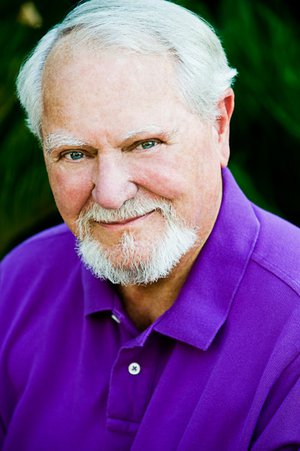
My son Dirk was three when I started writing in 1965. He told me that he remembers going to sleep hearing the “tap, tap, tap” of the typewriter keys as I pounded away on a card table in his bedroom. I was working in the advertising industry then. My wife had taken a night job at the local police department—she wasn’t in uniform, more like a secretary or dispatcher or something—so I’d come home, feed the kids and put them to bed, but then I didn’t have anything to do. After awhile, I thought I’d write a book. I didn’t have the Great American Novel burning inside me. I just wanted to write a little paperback series. It was kind of a lark actually. I studied a bunch of authors and their fictional heroes—Edgar Allen Poe’s Inspector Dupont, Sherlock Holmes, James Bond, Travis McGee, Mike Hammer. I knew I had to do something that was a little different so I put my hero in and around water. He kind of resembled me. He was 6’3” and 185 pounds with eyes greener than mine. He made out with the girls better than I did though.
What’s been one of the most rewarding things about being a best-selling author?
The part that continually astounds me is how many lives I’ve reached out and touched. I get letters from all these kids who went into oceanography after reading my books. There have been fellows who wrote to me from prison to tell me that they wanted to turn their lives around and become more like Dirk Pitt. I got a letter from a doctor in New York who told me that he and his
dad were caught in a riptide on Long Island and that his dad would have drowned if he hadn’t remembered something he’d read in one of my books about Dirk Pitt swimming parallel to the beach in order to get out of a riptide.
In many of your Dirk Pitt novels, you take an alternative perspective on history, say, imagining what would have happened if Abraham Lincoln wasn’t assassinated but kidnapped. Have you always been a curious person?
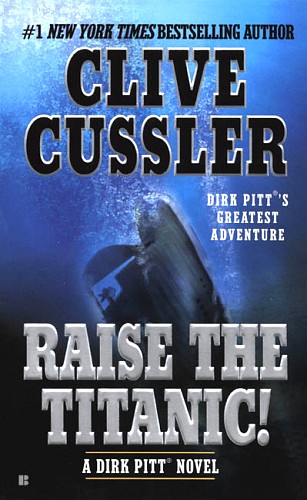
Oh, sure. It’s always a “what if” situation for me. You start with that. My breakthrough book in 1975, Raise the Titanic!, imagined what would happen if someone actually located the Titanic and managed to raise it from the ocean floor. It’s kind of funny because in the book I guessed that the Titanic was about 12,400 feet down, and it turns out that I was only off by 200 feet. And when Dirk Pitt was in a submersible, the first thing he saw was the Titanic’s boiler. Bob Ballard, the underwater archeologist who actually discovered the Titanic in 1985 told me that the first thing he saw when he went down there was the boiler. I’ve never been psychic, but I sure got that right.
Where do you get your ideas?
I don’t know. I remember being in math class as a kid and I just couldn’t do it. Instead, I’d look out the window and daydream about being a pirate. All my teachers thought I was a loser. It wasn’t until I was 79 years old that I found out that I have Attention Deficit Disorder. It explained everything.
How did you have the nerve to leave a lucrative job in advertising so you could have more time to write?
Just to show you what a nutcase I am, I turned down a job at a big agency that paid $28,000 a year to take a job in a dive shop that paid $400 a week so I could write. I remember the guy at the dive shop saying, “Aren’t you a little over-qualified?” but I had more fun there. I wrote my second book, Mediterranean Caper, in longhand when business was slow. Then in 1970 we left California to tour the 11 western states in a pop-up trailer. We ended up renting a little alpine house in Colorado where I started my third book. When we ran out of money, I drove to Denver and applied for a job as a copywriter. The first agency thought I was over-qualified plus they didn’t want any “hotshot from California telling us how it’s done.” I told the next agency that I’d just been a copywriter, and as luck would have it, when they called my agency in LA and asked if Clive Cussler worked there, the person in HR just said yes without adding any details. I got the job, and within a year we started winning CLEO awards. But I didn’t have any time to write so I quit that job. I was practically on unemployment when I wrote Raise the Titanic! I always talk about perseverance. When you type the words “Chapter One,” you’re committed for the next year or so.
What can you tell me about NUMA?
I’ve always been fascinated with shipwrecks so I created this agency to look for historic ships of significance before they’re gone forever. My first expedition was to look for John Paul Jones’ ship, the Bonhomme Richard. In 1979 an attorney who was with us on that expedition
said that if we were going to continue with this madness that we should incorporate. They wanted to call it the Clive Cussler Foundation, but I said no, so they used the name of the agency I’d written into my books.
What are some of NUMA’s biggest discoveries?
We found the Hunley, the Confederate submarine that was sunk during the Civil War. We also discovered the Carpathia, the ship that rescued some of the Titanic’s survivors. I figured that the Carpathia had been scrapped but then I found out that it had been torpedoed by a German U-boat off the coast of Ireland in 1918. People think we’re this huge outfit. I get letters all the time from recent marine biology grads who want to work for NUMA, and they have no idea that it’s just me sitting here thinking, “Hmm, I wonder if...”
Have you always loved vintage cars?
I’ve always been a car nut. I built a hotrod when I was a kid. I had a 1925 limousine that we’d take to football games. My friends and I would dress up like gangsters in hats and scarves and carry beer and wine in my violin case. I played the violin when I was 10. That was a disaster.
When did you start writing yourself into your novels?
That’s kind of a funny story. I was writing this book called Dragon. Dirk Pitt was at a classic car show, and I had him introduce himself to this man I described as having gray hair and a beard. When he said, “Hi, I’m Dirk Pitt,” the character said, “I’m Clive Cussler.” I remember thinking, “Why am I doing that?” My editors at Putman thought it was kind of stupid, but I got 600 letters from fans who said they couldn’t wait to see how I’d show up in my next book.
What would you like it to say on your tombstone?
“It was a great party while it lasted. I trust it will continue elsewhere.”
*This interview was originally published June 18th, 2011 for Write On, SBWC's daily conference newsletter. Clive was wonderful! A great speaker with lots of stories, but you know that already if you've read his books. Pick up his most recent in the Isaac Bell detective series, The Thief.
